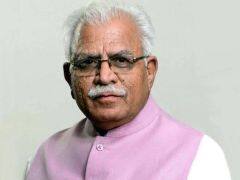

#Moneycontrol hindi news free
The Exchange does not warrant, guarantee or make any representations concerning the use, results of use or inability to use the information in terms of timeliness, truthfulness, sequence, completeness, accuracy, reliability, correctness, performance or otherwise regarding/pertaining to the information disseminated in form of Corporate Announcement or in any other form or otherwise on the Website of the Exchange (“Information”).Ħ.Ğxchange does not warrant that the information will be uninterrupted or free of any error, omission, defect, shortcoming or limitation of any kind or nature. The same may be verified by the Exchange only post dissemination on the Exchange website in accordance with the extant rules / guidelines provided by SEBI from time to time.Ĥ.Ğxchange shall not be, in any case whatsoever, held in question regarding the accuracy/reliability of the disclosures uploaded by the Company and disseminated on the Exchange websiteĥ. The accuracy / adequacy / veracity of any information received from the companies by way of corporate Announcements is NOT pre-verified by the Exchange, before dissemination. The information uploaded on the Exchange’s website shall be a duty/responsibility/liability of the Company.ģ. The information disseminated seamlessly on the website of BSE Ltd (“Exchange”) in form of Corporate Announcement or in any other form or otherwise is provided “AS IS” and “WITH ALL FAULTS” and without warranty of any kind or nature.Ģ.

Tags: inflation loans financial planning Salaried Class SIP Health Insurance systematic investment plans Emergency Funds employer benefits equities investing debt investments personal finances Follow News on abp LIVE for more latest stories and trending topics.1. It provides behavioral discipline and guidance. A financial plan is crucial to manage finances and achieve goals. The start of the financial year is a good time to assess finances. Younger investors tend to prioritize high-yielding but high-risk products such as P2P lending, non-convertible debentures (NCDs), and stock baskets. The report also noted that despite the widespread availability of mutual funds and the popularity of Systematic Investment Plans (SIPs), investors are still allocating a low portion of their overall portfolio toward these funds. Factors that contributed to low savings included lifestyle expenses, large loans, and a lack of focus on saving. Among those surveyed, 57 per cent saved less than 20 per cent of their take-home salary, while 24 per cent did not save at all.

However, saving money was identified as a significant obstacle for many individuals. Respondents expressed a desire to expand their knowledge of financial planning, mutual funds, and taxation, the survey noted.
#Moneycontrol hindi news how to
About one-third (34 per cent) of respondents did not invest because they were unsure where to invest, the report said.Īlso Read: The Rise In Banking Services Frauds In India: How To Stay Vigilant And Prevent It In terms of investment, investing in equities was the choice of 44 per cent of the surveyed individuals, whereas 36 per cent preferred debt investments such as fixed deposits and insurance policies. In addition, 23 per cent of the respondents were not equipped to handle medical emergencies at all. According to the survey, 48 per cent of those who participated stated that they depended on medical insurance provided by their employer, but they were uncertain if it would be sufficient. Supporting elderly parents and paying for medical expenses were bigger financial worries than not being able to repay loans, especially credit card debt. According to a survey, 48 per cent of the respondents identified that planning for financial goals was their most significant financial challenge, while 42 per cent said they would not be able to cover their expenses if they became unemployed. It was conducted among 1,364 salaried employees. The report cites a survey by Finsafe India, a financial education company. According to the report, the salaried class tends to rely solely on employer benefits and is unsure if they are planning correctly for their goals. A Mone圜ontrol report citing a survey of salaried employees said that Indians lack financial planning. Lack of financial planning continues to be one of the biggest challenges faced by salaried Indians.


 0 kommentar(er)
0 kommentar(er)
